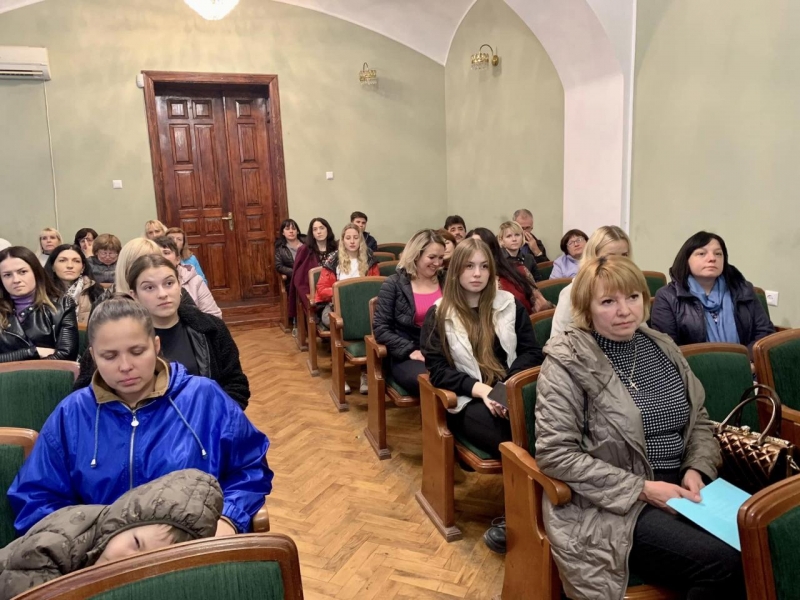The results of a sociological survey of internally displaced persons living in the Horodotsk community were presented on September 29 as part of the USAID “HOVERLA” Project.
We surveyed and presented the opinion of 100 people from this category. They rated the level of accessibility of a number of services in the community quite highly, and hygiene products, clothes/shoes, and food products were named among the most urgent needs.
The “resettlers” themselves, specialists of the city council, the Center for Social Protection and Humanitarian Management, who work with IDPs, as well as the head of the Horodotsk territorial community, Volodymyr Remenyak, took part in the discussion of the results of the survey.
“It is important for me to be here. The analysis of the conducted survey makes it possible to comprehensively understand people’s needs and better respond to them. But no matter how much donors help, all efforts will be insufficient if we do not take care of the economic development of the territory, if investors do not come in and jobs are not created – conditions for a person to earn a living on his own,” said the head of Horodotsk TG.
The mayor thanked those involved in the conduct of this study: experts from the NGO European Dialogue, internally displaced persons – for bravely enduring the realities caused by the war, project partners of the NGO Apostol’ska Chota – for their active involvement in socially important matters.
The participants of the presentation from among the internally displaced people received hygiene products from the NGO Apostolska Chota.
“The publication was created in cooperation with the NGO “European Dialogue” within the framework of the Project “Partnership between public organizations and local self-government bodies in the integration and adaptation of internally displaced persons in the territorial communities of Lviv region”, and was made possible thanks to the United States Agency for International Development (USAID) and to the sincere support of the American people through the USAID HOVERLA Project. The content of this publication does not necessarily reflect the views of USAID or the US Government.”

